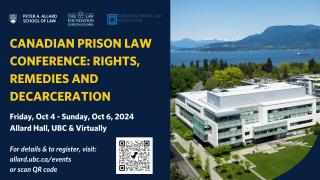The Canadian Prison Law Association is partnering with the Peter A. Allard School of Law to bring the Canadian Prison Law Conference: Rights, Remedies and Decarceration to the Vancouver campus on October 4-6, 2024.
The conference will bring together lawyers, scholars, students, community advocates, and people with lived experience of incarceration to share knowledge and discuss legal strategies for promoting decarceration and prisoners’ rights.
The conference will take place on unceded xʷməθkʷəy̓əm (Musqueam) territory and will include panels on Indigenous self-determination and Indigenous justice practices, life sentences, solitary confinement in its many forms, enforcing human rights in places of detention, abolitionist legal strategies, constitutional rights and remedial possibilities, prison law and legal education, and more.
We gratefully acknowledge support from the Law Foundation of British Columbia and the Peter A. Allard School of Law Research Engagement Fund.
The conference organizing committee consists of Debra Parkes (co-chair), Kate Mitchell (co-chair), Nora Demnati, Nyki Kish, Jennifer Metcalfe and Reakash Walters.
The in-person registration deadline is Monday, September 23. There is no deadline for remote participation.
Program
Looking for something to eat near the conference venue? See: UBC Restaurants and Campus Attractions
Registration
Registration fees:
- General in-person: $250 + GST = $262.50
- General online: $50 + GST = $52.50
- Student in-person: $50 + GST = $52.50
- Student online: $25 + GST = $26.25
- People with lived experience of prison: Free. Contact cpla.conference@gmail.com before registering.
CPD Credits
Eligible for 12hrs of Law Society of BC CPD credits.
For members of the Law Society of Ontario:
- This program contains 0 hour(s) and 25 minutes of Professionalism Content
- This program contains 2 hour(s) and 10 minutes of EDI Professionalism Content
- This programs contains 9 hours and 25 minutes of Substantive Content
For members of the Law Society of Saskatchewan:
This program may be eligible for 12 hours of continuing professional development (2 hours and 30 minutes of which may qualify as ethics hours) under the Law Society of Saskatchewan Continuing Professional Development Policy.
Accommodation at the University of British Columbia
If you need accommodation and would like to stay on UBC campus, there may be rooms available at Gage Signature Studio Suites. Visit Stay at UBC for more information and to book a room online.
Speakers
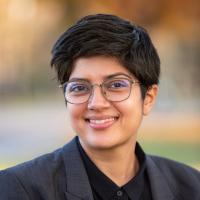
Amna Akbar is a professor at the Ohio State University Moritz College of Law. Her writing and teaching focuses on the theories and practices of social movements and social change, criminal law, policing, race, and inequality. She was named a Freedom Scholar in 2021 and has served as a fellow in the Program in Law and Public Affairs at Princeton University. Amna clerked for Judge Gerard E. Lynch in the Southern District of New York, and she previously worked as a staff attorney with the Queens Legal Service Corp in a community-based women’s legal services project. She received her B.A. from Barnard College, Columbia University, and her J.D. from the University of Michigan.
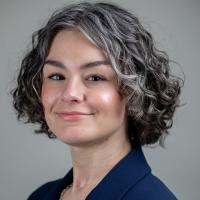
Alexandria Bonney is a lawyer and professor residing in Ottawa, Ontario. Her legal practice focuses on mental health and prison law, while her research focuses on liberty rights and conditions of confinement for provincial prisoners. Alexandria co-teaches the Prison Law Practicum at the University of Ottawa Law School and Prison Law in Action at Carleton University. She is also a founding member of Prisoner Legal Supports, a nonprofit organization providing free legal services to provincial prisoners.
John Conroy is a Barrister and Solicitor who graduated from the University of British Columbia Law School in 1971. He has his own law firm, Conroy & Company, based in Abbotsford, British Columbia. His practice is primarily as Defence counsel in criminal matters, with an additional focus on sentencing and post-sentencing matters which involves an extensive administrative law and constitutional law practice. Mr. Conroy has been involved in numerous cases involving prisoners, prisons and parole, including the BC Pen Steinhauser hostage-taking case in 1975, numerous judicial reviews of life sentences, ensuring international transfers, and a number of administrative and constitutional challenges.
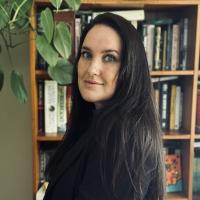
Emilie Coyle is the Executive Director of the Canadian Association of Elizabeth Fry Societies (CAEFS). With a legal background and experience in non-profit management, Emilie has dedicated her career to advocating for and working with marginalized communities. She has held leadership roles at organizations such as The Refugee Hub at the University of Ottawa and the YMCA-YWCA of the National Capital Region. Emilie holds a JD from Dalhousie University’s Schulich School of Law and over the years has been involved in social justice work as a volunteer, including co-founding Parents 4 Diversity and supporting LGBTQIIA+ refugees. In her personal life, Emilie is a committed community member, avid reader, and loving partner, parent, family member, and friend.
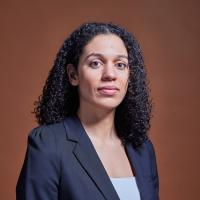
Nora Demnati is a passionate human rights and prison lawyer who has been actively involved in fighting racial profiling and discrimination within federal penitentiaries, and within the criminal justice system generally. Her advocacy focuses on decarceration and she is always cautious to adapt her work to the needs and lived experience of the incarcerated individuals she represents. Nora is also involved with the civil society in promoting adapted services to reintegrating prisoners.

In addition to her role as Co-Director of Prisoner Legal Supports, Lydia Dobson is a practicing lawyer at Champ and Associates and Adjunct Professor at the University of Ottawa in the Faculty of Law, and in the Institute of Criminology at Carleton University. She has been actively engaged with prisoners’ rights advocacy for over a decade and is a founding member of the Criminalization and Punishment Education Project as well as the Toronto Prisoners’ Rights Project. Lydia has worked extensively with prisoners experiencing solitary confinement. Her research and advocacy focus on conditions of confinement in Ontario prisons and using the law as a tool for social change.
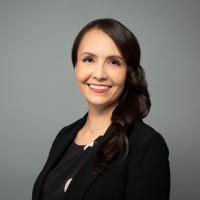
Jennifer A. Duncan, B.A. (Hons), LL.B., is a sole practitioner specializing in Indigenous law with a focus on governance, including advocacy at the United Nations. She has a Bachelor of Arts in Native Studies from the University of Alberta graduating with honours. Jennifer obtained her law degree from the University of British Columbia. She is member of the Law Society of British Columbia and the Law Society of the Northwest Territories. Jennifer is a member of the Behdzi Ahda’ First Nation, located in the Arctic, Northwest Territories. Her law practice is located on the Squamish reserve in West Vancouver.
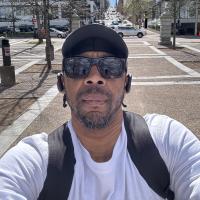
Renford Farrier is a Black man who immigrated to Toronto from Jamaica in the 70s. He is a father, grandfather, and son. He spent the last 3 decades incarcerated, and now he’s an advocate for prison reform, and improvement of our correctional services. He is a community volunteer, a peer support, and mentor to young people.

Allison Fenske is Clinical Counsel at the University of Manitoba’s Faculty of Law and Director of the University of Manitoba Community Law Centre – a long-standing partnership with Legal Aid Manitoba providing law students with the opportunity to represent individuals who would not otherwise receive legal aid. Recently, the UMCLC launched Manitoba’s first Prison Law Clinic. Called to the bar in 2008, Allison has appeared at all levels of court and before a variety of administrative tribunals. Her legal work has focused on defending and advancing the rights of people and communities marginalized through state and systemic oppression.
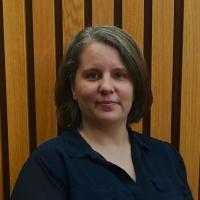
Susan Haas was called to the Bar in 2017 and worked as a staff lawyer at Legal Aid Alberta since 2018. Her interest in prison law began when, as an articling student at Legal Aid Manitoba, she was tasked with providing duty counsel services in CSC Major Disciplinary Court and observed firsthand the deficiencies in a disciplinary process which can have far-reaching implications for inmates. She has sat on the board of the Alberta Prison Justice Society ("APJS") since 2018, and represented the APJS as intervenor at the Alberta Court of Appeal in Wilcox v Alberta, 2020 ABCA 104. She has co-instructed Prison Law and Habeas Corpus at the University of Alberta Faculty of Law since 2021.
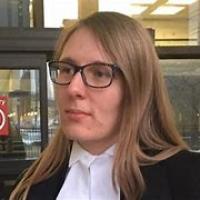
Amanda Hart-Dowhun is a University of Alberta Law 2012 graduate who has made a career focused on forwarding Charter litigation and prison issues. She was in private practice for over 10 years with a practice focused on criminal defence, police brutality cases, and prison issues/habeas corpus. She was an executive member of the Criminal Trial Lawyers' Association and is the founder and current president of the Alberta Prison Justice Society. Currently, she is employed in-house at Legal Aid Alberta as the Assessment Manager. She developed and continues to teach a course in prison law at the Faculty of Law.
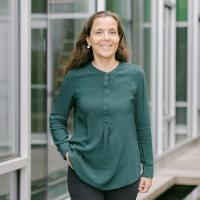
Andrea Hilland, KC is a member of the Nuxalk Nation and an Assistant Professor at the Peter A. Allard School of Law. Her research examines the intersections of Indigenous laws, Aboriginal rights, and environmental regulation to challenge discriminatory theories of colonial supremacy and Indigenous inferiority perpetuated through the contemporary colonial legal system. Prior to entering academia, Andrea advocated on behalf of First Nations to assert Aboriginal rights with respect to environmental issues, advised non-governmental organizations regarding Indigenous issues in the context of legal regulation, and was appointed King’s Counsel in 2021. She also served as Associate Director of Indigenous Legal Studies at Allard Law from 2008-2012.

Humera Jabir is a second-generation settler of South Asian origin. She is a Staff Lawyer for West Coast LEAF, a BC-based public interest legal non-profit that works to deepen justice and substantive equality for women, people who experience gender discrimination, and Indigenous peoples and communities. Humera advocates for gender justice through legal cases and law reform efforts. Prior to joining West Coast LEAF, Humera clerked for the Ontario Superior Court of Justice, practiced constitutional, administrative, and human rights law, and worked in civilian oversight of policing.

Michael Jackson, K.C. has been a professor and advocate of human rights for over 50 years. He introduced the first courses on Prisoners Rights and Aboriginal and Treaty rights in a Canadian law school; he has represented Prisoners and Indigenous Nations in leading cases before the Supreme Court of Canada; he has presented submissions for the CBA to committees of the House of Commons and the Senate. In 2009 he was the first recipient of the Ed McIsaac Human Rights in Corrections Award. In 2019 he received the inaugural Lifetime Achievement Award from the Canadian Prison Law Association His publications include Prisoners of Isolation: Solitary Confinement in Canada (1983) and Justice behind the Walls: Human Rights in Canadian Prisons (2002).
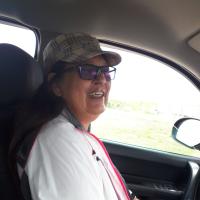
Yvonne Johnson is a mother of four and grandmother to eleven. She is a direct descendent of Chief Big Bear from her grandfather John Bear. Yvonne’s mother’s name was Cecilia Bear, daughter of John Bear and Flora Baptists of Red Pheasant Reserve treaty six territory, of which she is a treaty member. She is a storyteller, a knowledge keeper, a pipe carrier, an elder, a sweat lodge conductor, and a matriarch of her family. She was convicted of murder and received a life sentence, for which she served 17 years, and has been out on parole since 2010, although because of the life sentence of supervision she still lives with fear of being hurt further by the justice system.
Jeff Kennedy is an Assistant Professor at McGill University’s Faculty of Law, where he teaches Prison Law, Criminal Procedure, and Legal Ethics, and formerly a Senior Lecturer and Director of the Criminal Justice Centre at Queen Mary, University of London. He was previously the Chair and Coordinator of Communitas (Montreal), a non-profit organization focused on post-prison reintegration and support.

Nicole Kief is the Policy Director and a Senior Legal Advocate at Prisoners’ Legal Services, where her work focuses on systemic advocacy around human rights issues facing incarcerated people. Prior to joining PLS, Nicole worked at the American Civil Liberties Union, where she did state-level policy advocacy to combat the school-to-prison pipeline and safeguard and expand the right to vote, including and especially to people with criminal records. She also served as Interim Executive Director of the ACLU of South and North Dakota. Nicole has a Master’s degree from New York University.

Nyki Kish is an PhD candidate in the department of Sociology at the University of Victoria and a graduate student member of UBC’s Transformative Health and Justice Research Excellence Cluster since 2021. She is committed to public scholarship, advocacy, and community-engaged research with and for populations impacted by various forms of criminalization. Nyki specializes in qualitative methods and knowledge mobilization, and her graduate work focuses on Canada’s rising use of life sentences, and on the histories and changing contexts of institutions of law and punishment. She has been named Principal Investigator on a successful Social Sciences and Humanities Research Council Partnership Development Grant, which will establish a national centre for research into the impacts and outcomes of incarceration in Canada.
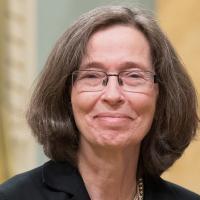
Catherine Latimer has been the Executive Director of the John Howard Society of Canada since 2011. Previously, Ms. Latimer was a policy lawyer for the federal government providing analysis and policy advice for the Departments of the Solicitor General, the Privy Council Office, and Justice and had a lead responsibility in the development of the Youth Criminal Justice Act. Her law degree is from Queen’s University, Kingston and her Masters in Criminology is from Cambridge University. She is a Broadbent Fellow, past President of the National Associations Active in Criminal Justice and a Member of the Order of Canada.
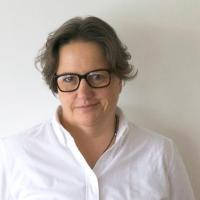
Liora Lazarus is Professor in Law at the Peter A. Allard School of Law, University of British Columbia and Supernumerary Fellow of St. Anne’s College, Oxford. She specialises in the relationship between security, fundamental rights and the rule of law. Prior to UBC, Liora spent twenty years at the University of Oxford where she was inter alia Head of Research at the Bonavero Institute of Human Rights, Associate Professor in Law, and Professor in Human Rights Law. She is the Founding Editor of Hart Studies in Security and Justice, articles editor of the Oxford Journal of Legal Studies, and a previous recipient of the British Academy Mid-Career Fellowship.
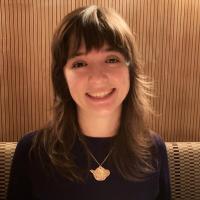
Jessica Magonet is a staff lawyer at Prisoners’ Legal Services in the human rights and healthcare program. Her work focuses on systemic litigation to protect the rights of incarcerated people. Jessica previously worked as a lawyer for the BC Civil Liberties Association and at Arvay Finlay LLP. From 2016 to 2018, she served as a law clerk to Justice Karakatsanis at the Supreme Court of Canada. Jessica obtained her law degree from McGill in 2015.
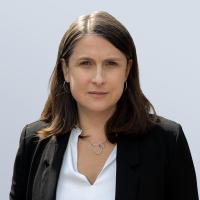
Jennifer Metcalfe is a settler living and working on the unceded lands of the xʷməθkʷəy̓əm (Musqueam), Sḵwx̱wú7mesh (Squamish), səlilwətaɬ (Tsleil-Waututh) and Qayqayt Nations. She is the Executive Director of Prisoners’ Legal Services, a legal aid clinic for people in federal and provincial prisons in BC. Jennifer has worked as a lawyer at Prisoners’ Legal Services since 2006. She is the vice-president of the Canadian Prison Law Association and is a member of the Canadian Bar Association Committee on Imprisonment and Release. She received her law degree from the University of British Columbia and was called to the bar in 2004.
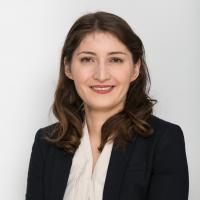
Kate Mitchell is an SJD candidate at the University of Toronto and a Trudeau Scholar. Her research focuses on prisons and the rule of law. Prior to her graduate studies, Kate worked as a prison lawyer in Kingston, Ontario. She has been an active member of the Canadian Prison Law Association, and she is currently the Chair of the Legislative Review Committee. She helped prepare the CPLA’s Supreme Court of Canada intervention submissions in R v Bissonette and Canada (Public Safety and Emergency Preparedness) v China, and she has worked on the CPLA’s responses to various policies and pieces of legislation.
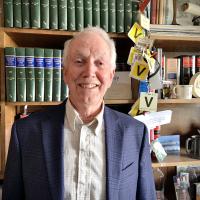
Fergus J. (Chip) O’Connor has, for over 50 years, argued for due process and the Rule of Law to apply to everyone, including serial killers, prisoners, and other unpopular people and groups. His Supreme Court cases include the right to Habeas Corpus within prisons [Miller], the right to vote for prisoners [Gould and Sauvé], the right to appeal Habeas Corpus [Olson], sentencing principles for indigenous offenders and for breaches of long term supervision [Ipeelee]. Chip has taught at Queen’s Law School and the Native Law Center of the University of Saskatchewan. He wrote the book “Penitentiaries, Jails, and Prisoners.”
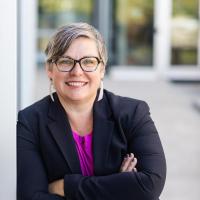
Debra Parkes is Professor and Chair in Feminist Legal Studies at the Peter A. Allard School of Law, University of British Columbia where she teaches constitutional law, prison law, and feminist legal studies. Debra’s scholarly work critically examines criminal and carceral systems and she has published widely on issues related to gender and racial inequality in those systems, sentencing and punishment practices, and the framing and adjudicating of prisoners’ rights claims. Debra is a board member of West Coast Prison Justice Society which operates Prisoners’ Legal Services.
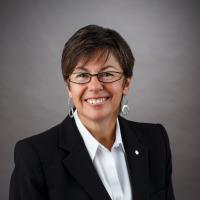
Kim Pate was appointed to the Senate of Canada on November 10, 2016. First and foremost, the mother of Michael and Madison, she is also a nationally renowned advocate who has spent the last 45+ years working in and around the legal and penal systems of Canada, with and on behalf of some of the most marginalized, victimized, criminalized and institutionalized — particularly imprisoned youth, men and women.
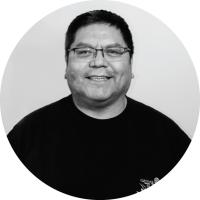
Boyd Peters is the Director of the Sts’ailes Rights and Title Department. He has now been elected to Sts’ailes Council for almost 30 years and is President of Sts’ailes Development Corporation. Boyd was born and raised in Sts’ailes where he learned about the history, traditions, and cultural teachings of his people. He has three children and two grandsons. He is presently elected to the BC First Nations Justice Council (BCFNJC) for his third three-year term. His portfolios for the BCFNJC are Indigenous Justice Centers, Policing Oversight and Accountability, Diversion, Corrections and Community Based justice programming.

Sheri Kathleen Pranteau is Oji-Cree, born in Winnipeg, Manitoba. She is also known as: KIN-WAY-SS-KA-PIM-MA-TEE-SEW, which translates to: SHE WHO WILL LIVE LONG, given to me by Cree Elder/Stonechild. She has also been named "RED ROCK WOMAN" by a Lakota Sioux Elder while in the Penitentiary. She is living under a life sentence for manslaughter, and has been successfully out on parole for over 14 years. Sherry has a beautiful son by the name of Neville. She recently worked as a Victims of Crime Coordinator with the First People's Justice Center of Montreal, which was an extremely educational experience. Currently she is looking for something new, still in the department of helping others, possibly in a new province.

Paul Quick is a staff lawyer for the Queen’s Prison Law Clinic in Kingston, Ontario. Paul’s work at the QPLC focusses on designing, developing and litigating pragmatic test-cases to address issues of systemic concern to people in prison (primarily through human rights complaints and court applications), and pursuing targeted interventions. Paul supervises law students in his Advanced Prison Law course, which supports the litigation work of the Clinic. An enthusiastic participant on the CPLA listserv, he thoroughly enjoys the opportunity to support prison-law colleagues across the land, drawing wisdom and inspiration from their experiences and efforts.

Svens Telemaque is a community advocate for prison reform, passionate about rehabilitating and reintegrating incarcerated and recently released individuals through his work with Union United Church. His recent appointment as a cultural advisor at The Parole Board of Canada has amplified his impact on black men in the justice system. As a facilitator, he has empowered many through various workshops In Federal Institutions across Quebec and Ontario, including training all Parole Officers throughout Quebec on culturally sensitive approaches to working with black men in the system. Sven continues to demonstrate his unwavering commitment to breaking down barriers and fostering positive change for those affected by the criminal justice system.

Merv Thomas is Cree, First Nations from Pelican Lake, Saskatchewan. He has one grandson to whom he is devoted. Currently he is the Chief Executive Officer of the Circle of Eagles Lodge Society residing in the territory of the Coast Salish people, in Vancouver, BC. Merv has been instrumental in development and overseeing many programs and services for Indigenous people, and he has volunteered his time serving on many Boards of agencies in BC, including currently as the Interim President of the BC Yukon Halfway House Association, Vice President of the Aboriginal Community Career Employment Services Society, and Board member of the Metro Vancouver Indigenous Executive Council.

Donna M. Turko, KC, is a trial and appeal lawyer in the areas of criminal, regulatory and prison law, noted for her success in the Supreme Court of Canada habeas corpus case, May v. Warden Ferndale Institution. She serves as an executive member of the Criminal Defence Advisory Committee. Donna is also a board member for Legal Aid BC, and she is passionate about mentoring junior criminal and prison lawyers. She graduated from Dalhousie Law in 1991, and did her bachelor's and master's degree in Sociology at UBC. A mother of a son and a daughter and a former TV reporter, Donna is looking forward to a fourth career in screenwriting in her retirement.

Reakash Walters is a Canadian lawyer and doctoral student at Berkeley School of Law. She currently serves as a Research Fellow at Harvard's Institute to End Mass Incarceration. Reakash completed her first law degree at the University of Ottawa. During this time, Reakash co-founded an award-winning podcast with Canadian Senator Kim Pate entitled Appointed: A Canadian Senator bringing Margins to Centre. She then practiced as a criminal defense lawyer and clerked at the Supreme Court of Canada before commencing graduate work at Columbia Law School as a Fulbright scholar. During her Masters, Reakash co-founded the Manhattan Courtwatch project. Her scholarly expertise centers institutional design, alternative legal frameworks, and the criminalization of Black friendship and kinship.

Sheila Wildeman is Associate Director of Dalhousie’s Health Justice Institute and Professor at the Schulich School of Law, where she teaches Administrative Law, Poverty Law, and Imprisonment Law (with Adelina Iftene). She is Co-Chair of East Coast Prison Justice Society. Sheila's research in recent years has focused on disability-based isolation and related forms of restraint in both prison and health spaces. Her work has increasingly gravitated toward arts-based action research, culminating last year in a multimedia art show titled "My Home My Rights: Exploring Disability Rights, Imagining Disability Justice," created with a group of six core researchers labelled with intellectual disabilities.
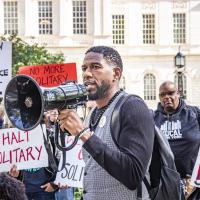
Jumaane D. Williams is an American politician who has served as the Public Advocate of the City of New York City since 2019. In his role, Jumaane represents the interests of New Yorkers, and he works through legislation and advocacy to improve city services and address community concerns. He represented the 45th District on the New York City Council from 2009 to 2019, and prior to that was the Executive Director of NYS Tenants and Neighbors. Throughout his career, Jumaane has been a committed activist and advocate on topics such as affordable housing, criminal justice reform, and social equity. He grew up in Brooklyn, and earned his Master’s degree in Urban Policy and Administration from Brooklyn College in 2005.

Adriel Weaver is a public law litigator. Much of her work focuses on defending and advancing prisoners’ rights and seeking to address various forms of systemic discrimination in the criminal legal system. Since 2016, Adriel has been an adjunct professor at the Centre for Criminology and Sociolegal Studies at the University of Toronto, where she teaches a variety of legal, undergraduate, and graduate courses. She also serves as the Chair of the Board of PASAN, a member of the Board and Chair of the Law Program Committee of LEAF, and a member of the Board of the Wellesley Institute.
- Allard School of Law
- External Organization
- All Students
- Continuing Professional Development
- Faculty
- Graduate Students
- JD
